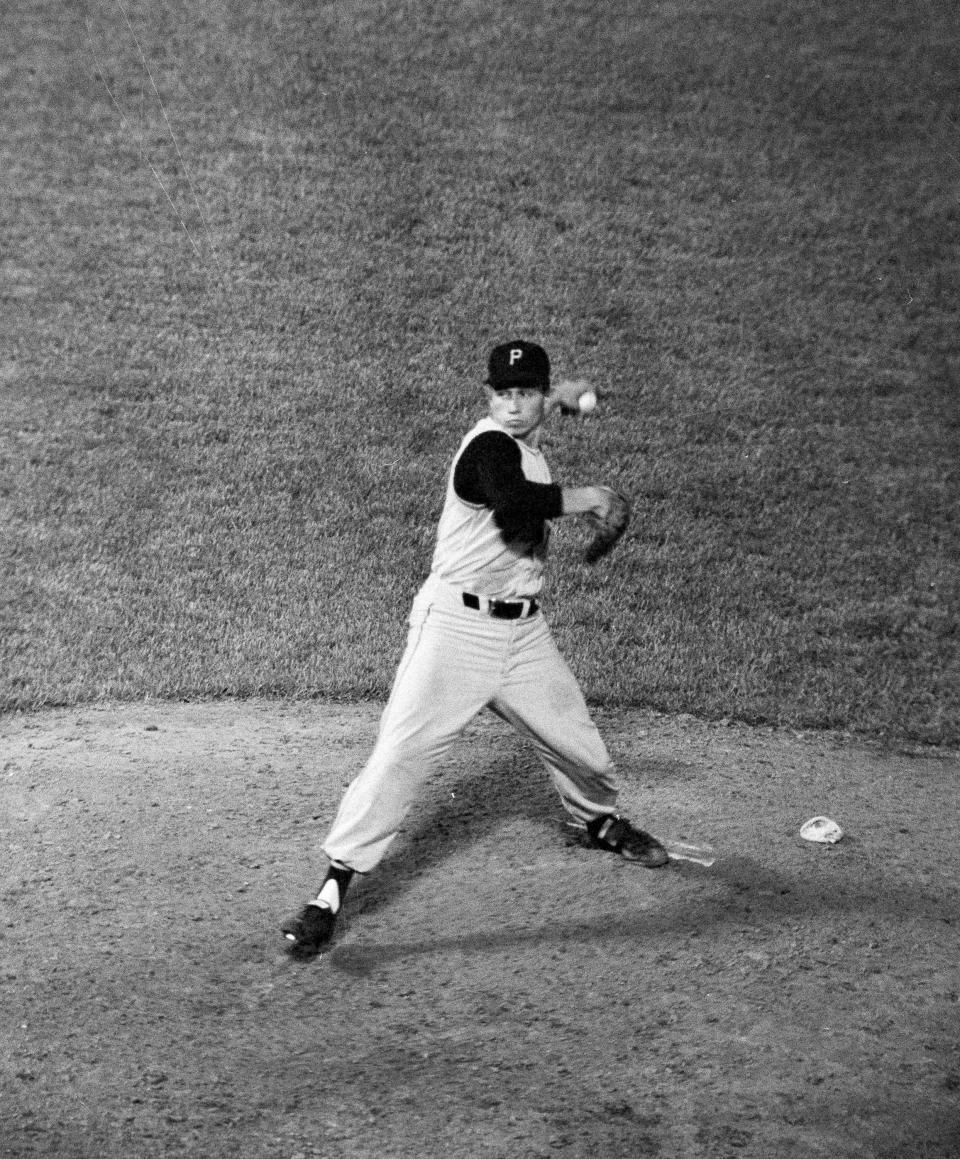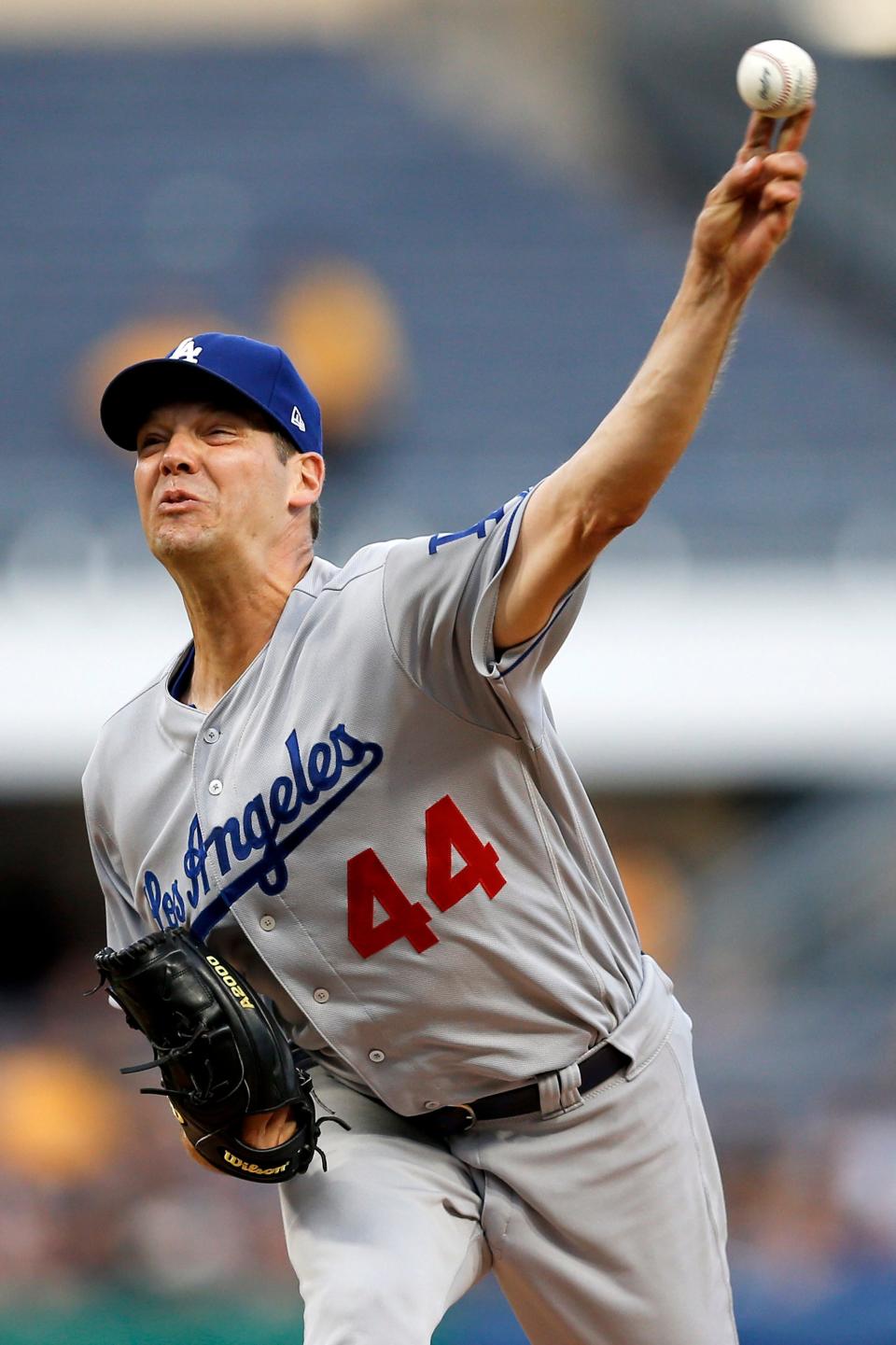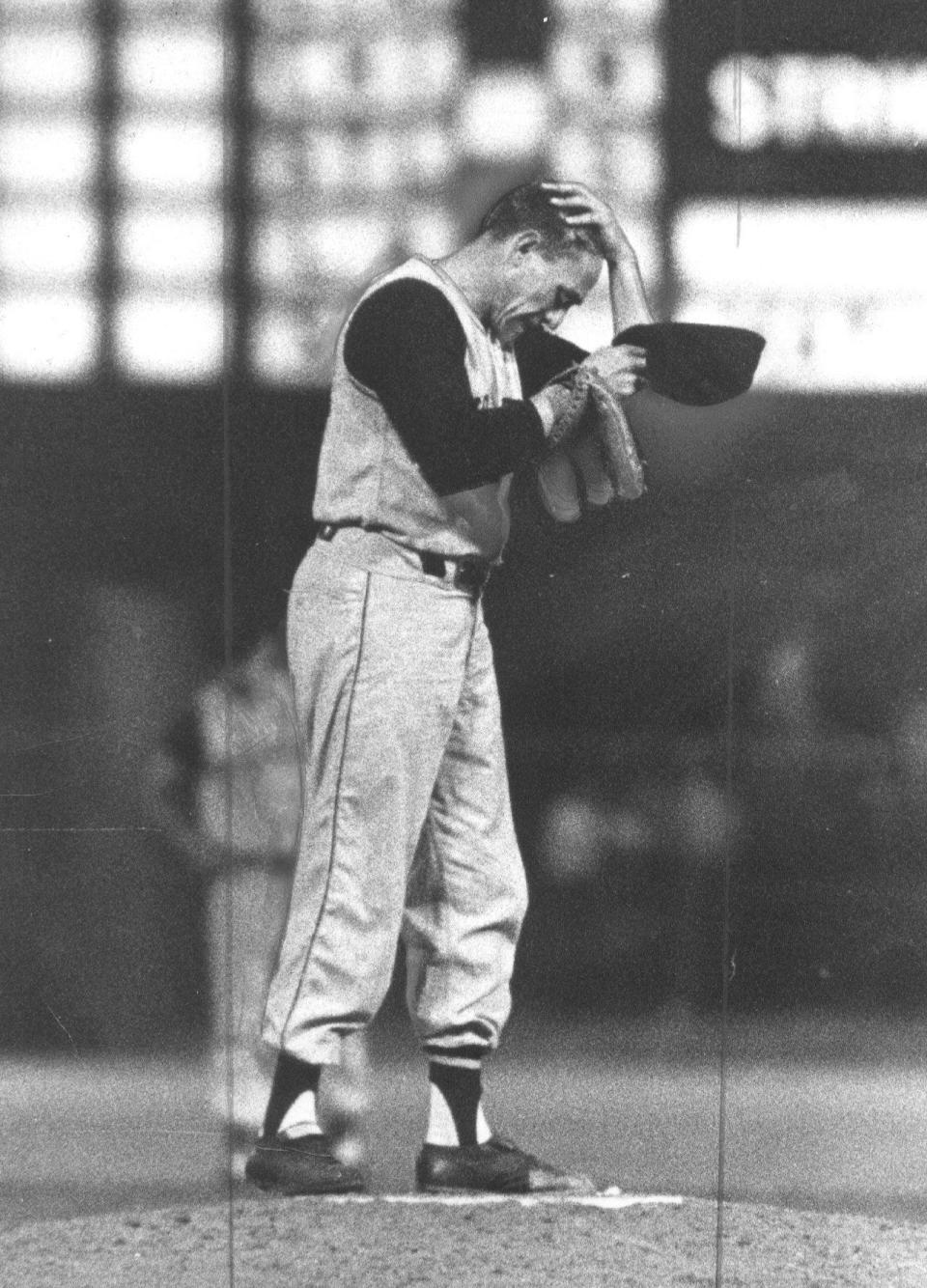Only three other no-hitters have lasted as long as the Brewers' on Monday. The most memorable happened in Milwaukee.

The Milwaukee Brewers came within two outs of an 11-inning no-hitter on Sunday, which would have been the first of its kind in Major League Baseball history. Alas, the New York Yankees rallied to break up the no-no and then win the game, 4-3, in 13 innings, an outcome that will bury the feat in the sands of forgotten history.
But it was truly one of the most unique performances ever, although the gold standard will belong to Harvey Haddix at County Stadium in Milwaukee.
How many no-hitters have lasted as long as Milwaukee's 10⅓ on Sunday?
Only four no-hitters in MLB history have been completed through 10 innings, and none have gone complete through 11. In fact, according to NoNoHitters.com, only three other games carried a no-hitter as far as Milwaukee's 10⅓ innings:
Harry McIntyre of the Brooklyn Superbas lost his no-hitter with two outs in the 11th inning on Aug. 1, 1906 (his team also lost in 13).
The Cincinnati Reds combined to carry a no-hitter against the Milwaukee Braves (also at County Stadium in Milwaukee) on May 25, 1956, but lost it with two outs in the 10th on Jack Dittmer's double. Hank Aaron later tripled in the 11th and scored on Frank Torre's single for a 2-1 Braves win. Pitchers for the Reds that day were Johnny Klippstein, Hersch Freeman and Joe Black.
Then, there's Haddix, who carried a perfect game into the 13th on May 26, 1959, only to lose it through dramatic circumstances. It's regarded as one of the best single-game pitching performances ever, if not the greatest.

How many recent games have taken no-hitters into extras?
It's only the third time since the turn of the century that a no-hitter had been broken up in extras.
On April 23, 2022, in a game started by Wisconsin native and former Brewers reliever J.P. Feyereisen (who pitched two innings), the Tampa Bay Rays bullpen worked nine hitless innings on April 23, 2022, but lost it leading off the 10th. The Rays went on to win the game, 3-2, on a walk-off home run.
On Aug. 23, 2017, Rich Hill of the Los Angeles Dodgers gave up a walk-off homer to Josh Harrison leading off the bottom of the 10th, eradicating his no-hit bid that had lasted nine innings.
Before that, you have to go back to 1995, where Pedro Martínez had a perfect game through nine innings while pitching with the Montreal Expos on June 3, 1995. He surrendered a leadoff double in the 10th after his team had taken the lead, but Mel Rojas got the final three outs and the Expos went on to win, 1-0. It's one of only two instances in the 1990s of a no-hitter lasting past nine complete, and before that, the next previous instance can be found in 1965.
On June 14, 1965, Jim Maloney of the Reds gave up a leadoff homer in the 11th and allowed one more hit in a 1-0 loss to the Mets. Aside from the aforementioned three instances, it's the only other documented no-hitter still intact at the start of an 11th inning.

The Harvey Haddix Game was unlike anything that has happened since
It's hard to believe the events of the 1959 game starring 33-year-old left-hander Harvey Haddix.
In unseasonably warm Milwaukee, Haddix fell behind the second batter he faced with a full count and then didn't get to a three-ball count again until the 13th inning.
But even as he mowed down a powerful Braves lineup that featured Hall of Famers Eddie Mathews and Hank Aaron, Haddix couldn't get any run support. Braves starter Lew Burdette matched Haddix in throwing up zeroes, even though Burdette would finish the game having worked 13 innings and allowed 12 hits with only two strikeouts (but no walks).
The Pirates ran into an out in the third when Roman Mejias tried to advance to third on Haddix's own single off Burdette's leg, but despite all the traffic, Pittsburgh went only 0-for-2 with runners in scoring position.
Haddix remarkably only threw 115 pitches in the game over nearly 13 innings of work. After retiring 36 straight men, Haddix lost the perfect game in the top of the 13th when Pirates third-baseman Don Hoak committed an infamous throwing error on a routine bouncer that allowed Felix Mantilla to reach first. Mantilla had subbed into the game after Milwaukee's Del Rice pinch hit in the 10th for Johnny O'Brien, and Mantilla took Rice's place at second base.
After a sacrifice bunt by Eddie Mathews and an intentional walk to Hank Aaron, Haddix lost the no-hitter and the game when Joe Adcock belted a slider for a walk-off homer to right center.
The game went down in history as a 1-0 win because Aaron (not realizing the ball had cleared the fence) walked off the field before rounding the bases, assuming the game was over. Adcock was only credited with a double instead of a homer, but Mantilla had scored and made the subsequent runners moot. Umpires discussed if Aaron was ruled out before Mantilla (who tagged up at third base) had officially scored. They initially allowed all three runs, but National League president Warren Giles overruled that decision the next day and settled on the 1-0 outcome.
Haddix finished with eight strikeouts and only the lone intentional walk.
The performance earned Haddix notoriety, including an invitation to appear on "The Ed Sullivan Show" and a feature in Sports Illustrated. He had made three all-star teams with the Cardinals from 1953 through 1955 but not again thereafter in a career that lasted through 1965. He did win three Gold Gloves and had a 3.63 ERA over 14 seasons.
This article originally appeared on Milwaukee Journal Sentinel: Brewers extra-inning no-hit bid conjures Harvey Haddix

